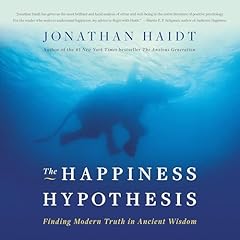
Survival of the Virtuous
The Evolution of Moral Psychology
No se pudo agregar al carrito
Add to Cart failed.
Error al Agregar a Lista de Deseos.
Error al eliminar de la lista de deseos.
Error al añadir a tu biblioteca
Error al seguir el podcast
Error al dejar de seguir el podcast
Obtén 3 meses por US$0.99 al mes
 Exclusivo para miembros Prime: ¿Nuevo en Audible? Obtén 2 audiolibros gratis con tu prueba.
Exclusivo para miembros Prime: ¿Nuevo en Audible? Obtén 2 audiolibros gratis con tu prueba.
Compra ahora por $21.38
-
Narrado por:
-
Lee Goettl
-
De:
-
Dennis L. Krebs
Do good guys finish last? Did we evolve to look out for number one? Are we bad by nature? At first glance, the theory of evolution seems to imply that all organisms are evolved to be selfish.
In this book, evolutionary psychologist Dennis Krebs explains how virtuous behaviors such as altruism, justice, honesty, loyalty, self-control, purity, and respect for authority, have evolved in humans and other species. He argues that the key to solving puzzles of morality—such as what it is, how we acquire moral traits, why we sometimes behave badly, and how we make moral decisions—lies in figuring out what adaptive functions moral traits served in early human environments and how they are influenced by social learning, culture, and strategic social interactions in the modern world. Arguing that the primary function of virtuous behaviors is to enable individuals to advance their own interests and examining the moral decision-making mechanisms that evolved to serve these functions, this book considers the "new brain" mechanisms that are unique to humans and "old brain" mechanisms that we share with other species, illuminating how these work in conjunction with each other to guide our moral choices.
©2022 Oxford University Press (P)2023 TantorLos oyentes también disfrutaron:






















